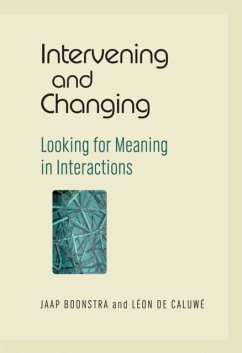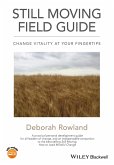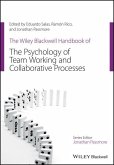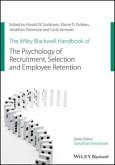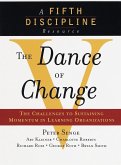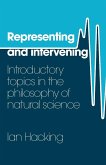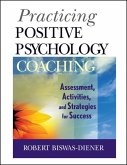Intervening and Changing
Looking for Meaning in Interactions
Herausgeber: Boonstra, Jaap; De Caluwe, Leon
Intervening and Changing
Looking for Meaning in Interactions
Herausgeber: Boonstra, Jaap; De Caluwe, Leon
- Gebundenes Buch
- Merkliste
- Auf die Merkliste
- Bewerten Bewerten
- Teilen
- Produkt teilen
- Produkterinnerung
- Produkterinnerung
Presenting new thinking in organizational psychology from the Netherlands, Intervening and Changing is a guide to applying global thinking and democratic values to achieve innovation.
Andere Kunden interessierten sich auch für
![Still Moving Field Guide Still Moving Field Guide]() Deborah Rowland (Valparaiso University)Still Moving Field Guide23,99 €
Deborah Rowland (Valparaiso University)Still Moving Field Guide23,99 €![Suicide in Schools Suicide in Schools]() Terri A. Erbacher (US Philadelphia College of Osteopathic MedicineSuicide in Schools84,99 €
Terri A. Erbacher (US Philadelphia College of Osteopathic MedicineSuicide in Schools84,99 €![The Wiley Blackwell Handbook of the Psychology of Team Working and Collaborative Processes The Wiley Blackwell Handbook of the Psychology of Team Working and Collaborative Processes]() The Wiley Blackwell Handbook of the Psychology of Team Working and Collaborative Processes52,99 €
The Wiley Blackwell Handbook of the Psychology of Team Working and Collaborative Processes52,99 €![The Wiley Blackwell Handbook of the Psychology of Recruitment, Selection and Employee Retention The Wiley Blackwell Handbook of the Psychology of Recruitment, Selection and Employee Retention]() The Wiley Blackwell Handbook of the Psychology of Recruitment, Selection and Employee Retention52,99 €
The Wiley Blackwell Handbook of the Psychology of Recruitment, Selection and Employee Retention52,99 €![The Dance of Change The Dance of Change]() Peter M. SengeThe Dance of Change35,99 €
Peter M. SengeThe Dance of Change35,99 €![Representing and Intervening Representing and Intervening]() Ian HackingRepresenting and Intervening62,99 €
Ian HackingRepresenting and Intervening62,99 €![Practicing Positive Psychology Coaching Practicing Positive Psychology Coaching]() Robert Biswas-Diener (Meridian Life Coaching, LLC, Portland, OregonPracticing Positive Psychology Coaching63,99 €
Robert Biswas-Diener (Meridian Life Coaching, LLC, Portland, OregonPracticing Positive Psychology Coaching63,99 €-
-
-
Presenting new thinking in organizational psychology from the Netherlands, Intervening and Changing is a guide to applying global thinking and democratic values to achieve innovation.
Hinweis: Dieser Artikel kann nur an eine deutsche Lieferadresse ausgeliefert werden.
Hinweis: Dieser Artikel kann nur an eine deutsche Lieferadresse ausgeliefert werden.
Produktdetails
- Produktdetails
- Verlag: John Wiley and Sons Ltd
- Seitenzahl: 360
- Erscheinungstermin: 22. Oktober 2007
- Englisch
- Abmessung: 250mm x 173mm x 25mm
- Gewicht: 812g
- ISBN-13: 9780470512012
- ISBN-10: 0470512016
- Artikelnr.: 23163719
- Herstellerkennzeichnung
- Libri GmbH
- Europaallee 1
- 36244 Bad Hersfeld
- 06621 890
- Verlag: John Wiley and Sons Ltd
- Seitenzahl: 360
- Erscheinungstermin: 22. Oktober 2007
- Englisch
- Abmessung: 250mm x 173mm x 25mm
- Gewicht: 812g
- ISBN-13: 9780470512012
- ISBN-10: 0470512016
- Artikelnr.: 23163719
- Herstellerkennzeichnung
- Libri GmbH
- Europaallee 1
- 36244 Bad Hersfeld
- 06621 890
Jaap J. Boonstra is a Professor of Organizational Change and Development in the Faculty of Social and Behavioural Sciences at the University of Amsterdam, The Netherlands. He is also Dean and Scientific Director of Sioo, Inter-university Centre for Organizational Change and Learning. Founded by the Dutch universities, Sioo has been the bridge between scientifically founded theory and the practice of organizational and change processes in the Netherlands since 1958. He is also a visiting professor in Esade Business School in Barcelona, Spain. He is a research fellow and member of the scientific staff of The Netherlands School of Communications Research and the Amsterdam School of Social Research. After studying social and organizational psychology at Leiden University, The Netherlands, he obtained his doctorate with a thesis on integral organizational development and management of complex change processes. Previously, he was Associate Professor in organizational psychology at Leiden University, and has worked as a consultant, researcher, and managing partner at the Research Foundation for NewTechnology and Organizational Development. He lectures on the management of change, strategic decision-making, power and politics in organizations, and organizational learning. He has conducted research into the social and organizational aspects of technological innovations, sustainable development and change of organizations, strategic decision-making, and innovation. His research interests focus on barriers to organizational change and innovation, power dynamics in organizational change, sustainable development of organizations, democratic governance, and societal development. He has published over a hundred articles on technological and organizational innovation, management of organizational change, organizational learning, politics in organizations, strategic decision-making and fundamental change programmes in the service sector, and public administration in the Academy of Management Review, Concepts and Transformations, the European Journal of Work and Organizational Psychology , and Applied Psychology: An International Review. He is a member of the editorial board of several journals. Recently, he published a book on designing and developing organizations, and edited a special issue of the European Journal of Work and Organizational Psychology on power dynamics and organizational change. Leon de Caluwe is a Management Consultant and Professor of Change Management at the Vrije Universteit - VU . Together with Hans Vermaak he co-created the Thinking in Colors theory. In 2001, Leon de Caluwe was appointed as a professor at Vrije Universiteit and he manages the Center for Research in Consultancy which studies the role, interventions and effectiveness of management consultants.
About the Editors.
About the Contributors.
Foreword.
Part One: Introduction and Theoretical Position.
1 Intervening and changing.
Looking for meaning in interactions.
Jaap J. Boonstra en Léon de Caluwé.
2 Methodology of the evidential.
Research and sense giving in processes of organizational development.
Adriaan Bekman.
Part Two: Telling Stories and Investigation Realties.
3 Storytelling as interactive intervention.
Applying the narrative approach in organizational change.
François Breuer.
4 Working with stories.
Narrative and dialogue as methods for learning, understanding and practice
improvement.
Tineke Abma.
Part Three: Investigating History and Making History.
5 Learning histories in learning and change projects.
Making history with a passion.
Gerhard Smid in discussion with Godfried den Boer, Vittorio Busato,
Liesbeth Halbertsma and Tonnie van der Zouwen.
6 Making History Together.
The Learning-history method in theory and practice.
Leen van Driel.
Part Four: Appreciation Inquiry and Realizing Innovations.
7 Future Search.
Inspiring, discovering, learning, seeing, imagining and doing combined.
Gemma van der Ploeg and Annemieke Stoppelenburg.
8 An organizational change project based on an appreciative approach.
A large group intervention in a chemical company.
Luk Dewulf and Luc Verheijen.
9 Learning and changing in an open space.
The dynamics of and in an open space event.
Carla Vliex.
Part Five: Looking for Patterns and Possibilities for Innovation.
10 Working interactively with causal loop diagrams.
Intervention choices and paradoxes in practical applications.
Hans Vermaak.
11 Intervening in processes of sensemaking.
A method for breaking through the closeness of organizational processes.
Hans de Sonnaville.
12 Interaction at work.
Interactive interventions in social interactions.
Dick van Ginkel and Mariëtte Thijssen.
Part Six: Learning to Reflect and Change.
13 Organizing in-dept learning.
Change as reflective sensemaking.
Brechtje Kessener and Katrien Termeer.
14 Methodology for increasing collective competence.
A context for co-creative change.
André Wierdsma.
15 Shaping a learning process and realizing change.
Reflection, interaction and cooperation through survey feedback.
Kilian Bennebroek Gravenhorst.
Part Seven: Reflecting on Acting and the Pursuit of Beauty.
16 Free conduct as a method of intervention.
'Void leadership isn't leading anywhere'.
Julien Haffmans.
17 Aesthetics in work processes in organizations.
A perspective for intervention.
Mathieu Weggeman and Irene Lammers.
Part Eight: Critical Reflection and a Look Ahead.
18 Intervention through interaction.
A comparative review.
Jac Geurts, Jurriaan Altena and Bart Geluk.
Index.
About the Contributors.
Foreword.
Part One: Introduction and Theoretical Position.
1 Intervening and changing.
Looking for meaning in interactions.
Jaap J. Boonstra en Léon de Caluwé.
2 Methodology of the evidential.
Research and sense giving in processes of organizational development.
Adriaan Bekman.
Part Two: Telling Stories and Investigation Realties.
3 Storytelling as interactive intervention.
Applying the narrative approach in organizational change.
François Breuer.
4 Working with stories.
Narrative and dialogue as methods for learning, understanding and practice
improvement.
Tineke Abma.
Part Three: Investigating History and Making History.
5 Learning histories in learning and change projects.
Making history with a passion.
Gerhard Smid in discussion with Godfried den Boer, Vittorio Busato,
Liesbeth Halbertsma and Tonnie van der Zouwen.
6 Making History Together.
The Learning-history method in theory and practice.
Leen van Driel.
Part Four: Appreciation Inquiry and Realizing Innovations.
7 Future Search.
Inspiring, discovering, learning, seeing, imagining and doing combined.
Gemma van der Ploeg and Annemieke Stoppelenburg.
8 An organizational change project based on an appreciative approach.
A large group intervention in a chemical company.
Luk Dewulf and Luc Verheijen.
9 Learning and changing in an open space.
The dynamics of and in an open space event.
Carla Vliex.
Part Five: Looking for Patterns and Possibilities for Innovation.
10 Working interactively with causal loop diagrams.
Intervention choices and paradoxes in practical applications.
Hans Vermaak.
11 Intervening in processes of sensemaking.
A method for breaking through the closeness of organizational processes.
Hans de Sonnaville.
12 Interaction at work.
Interactive interventions in social interactions.
Dick van Ginkel and Mariëtte Thijssen.
Part Six: Learning to Reflect and Change.
13 Organizing in-dept learning.
Change as reflective sensemaking.
Brechtje Kessener and Katrien Termeer.
14 Methodology for increasing collective competence.
A context for co-creative change.
André Wierdsma.
15 Shaping a learning process and realizing change.
Reflection, interaction and cooperation through survey feedback.
Kilian Bennebroek Gravenhorst.
Part Seven: Reflecting on Acting and the Pursuit of Beauty.
16 Free conduct as a method of intervention.
'Void leadership isn't leading anywhere'.
Julien Haffmans.
17 Aesthetics in work processes in organizations.
A perspective for intervention.
Mathieu Weggeman and Irene Lammers.
Part Eight: Critical Reflection and a Look Ahead.
18 Intervention through interaction.
A comparative review.
Jac Geurts, Jurriaan Altena and Bart Geluk.
Index.
About the Editors.
About the Contributors.
Foreword.
Part One: Introduction and Theoretical Position.
1 Intervening and changing.
Looking for meaning in interactions.
Jaap J. Boonstra en Léon de Caluwé.
2 Methodology of the evidential.
Research and sense giving in processes of organizational development.
Adriaan Bekman.
Part Two: Telling Stories and Investigation Realties.
3 Storytelling as interactive intervention.
Applying the narrative approach in organizational change.
François Breuer.
4 Working with stories.
Narrative and dialogue as methods for learning, understanding and practice
improvement.
Tineke Abma.
Part Three: Investigating History and Making History.
5 Learning histories in learning and change projects.
Making history with a passion.
Gerhard Smid in discussion with Godfried den Boer, Vittorio Busato,
Liesbeth Halbertsma and Tonnie van der Zouwen.
6 Making History Together.
The Learning-history method in theory and practice.
Leen van Driel.
Part Four: Appreciation Inquiry and Realizing Innovations.
7 Future Search.
Inspiring, discovering, learning, seeing, imagining and doing combined.
Gemma van der Ploeg and Annemieke Stoppelenburg.
8 An organizational change project based on an appreciative approach.
A large group intervention in a chemical company.
Luk Dewulf and Luc Verheijen.
9 Learning and changing in an open space.
The dynamics of and in an open space event.
Carla Vliex.
Part Five: Looking for Patterns and Possibilities for Innovation.
10 Working interactively with causal loop diagrams.
Intervention choices and paradoxes in practical applications.
Hans Vermaak.
11 Intervening in processes of sensemaking.
A method for breaking through the closeness of organizational processes.
Hans de Sonnaville.
12 Interaction at work.
Interactive interventions in social interactions.
Dick van Ginkel and Mariëtte Thijssen.
Part Six: Learning to Reflect and Change.
13 Organizing in-dept learning.
Change as reflective sensemaking.
Brechtje Kessener and Katrien Termeer.
14 Methodology for increasing collective competence.
A context for co-creative change.
André Wierdsma.
15 Shaping a learning process and realizing change.
Reflection, interaction and cooperation through survey feedback.
Kilian Bennebroek Gravenhorst.
Part Seven: Reflecting on Acting and the Pursuit of Beauty.
16 Free conduct as a method of intervention.
'Void leadership isn't leading anywhere'.
Julien Haffmans.
17 Aesthetics in work processes in organizations.
A perspective for intervention.
Mathieu Weggeman and Irene Lammers.
Part Eight: Critical Reflection and a Look Ahead.
18 Intervention through interaction.
A comparative review.
Jac Geurts, Jurriaan Altena and Bart Geluk.
Index.
About the Contributors.
Foreword.
Part One: Introduction and Theoretical Position.
1 Intervening and changing.
Looking for meaning in interactions.
Jaap J. Boonstra en Léon de Caluwé.
2 Methodology of the evidential.
Research and sense giving in processes of organizational development.
Adriaan Bekman.
Part Two: Telling Stories and Investigation Realties.
3 Storytelling as interactive intervention.
Applying the narrative approach in organizational change.
François Breuer.
4 Working with stories.
Narrative and dialogue as methods for learning, understanding and practice
improvement.
Tineke Abma.
Part Three: Investigating History and Making History.
5 Learning histories in learning and change projects.
Making history with a passion.
Gerhard Smid in discussion with Godfried den Boer, Vittorio Busato,
Liesbeth Halbertsma and Tonnie van der Zouwen.
6 Making History Together.
The Learning-history method in theory and practice.
Leen van Driel.
Part Four: Appreciation Inquiry and Realizing Innovations.
7 Future Search.
Inspiring, discovering, learning, seeing, imagining and doing combined.
Gemma van der Ploeg and Annemieke Stoppelenburg.
8 An organizational change project based on an appreciative approach.
A large group intervention in a chemical company.
Luk Dewulf and Luc Verheijen.
9 Learning and changing in an open space.
The dynamics of and in an open space event.
Carla Vliex.
Part Five: Looking for Patterns and Possibilities for Innovation.
10 Working interactively with causal loop diagrams.
Intervention choices and paradoxes in practical applications.
Hans Vermaak.
11 Intervening in processes of sensemaking.
A method for breaking through the closeness of organizational processes.
Hans de Sonnaville.
12 Interaction at work.
Interactive interventions in social interactions.
Dick van Ginkel and Mariëtte Thijssen.
Part Six: Learning to Reflect and Change.
13 Organizing in-dept learning.
Change as reflective sensemaking.
Brechtje Kessener and Katrien Termeer.
14 Methodology for increasing collective competence.
A context for co-creative change.
André Wierdsma.
15 Shaping a learning process and realizing change.
Reflection, interaction and cooperation through survey feedback.
Kilian Bennebroek Gravenhorst.
Part Seven: Reflecting on Acting and the Pursuit of Beauty.
16 Free conduct as a method of intervention.
'Void leadership isn't leading anywhere'.
Julien Haffmans.
17 Aesthetics in work processes in organizations.
A perspective for intervention.
Mathieu Weggeman and Irene Lammers.
Part Eight: Critical Reflection and a Look Ahead.
18 Intervention through interaction.
A comparative review.
Jac Geurts, Jurriaan Altena and Bart Geluk.
Index.

